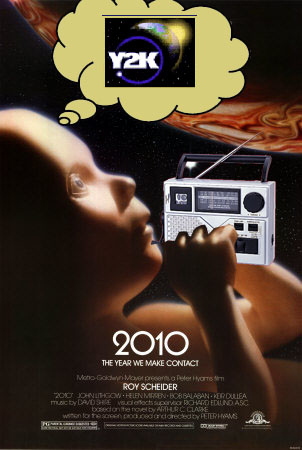One of the more frustrating peculiarities of our system of broadcasting here in the United States is that over-the-air radio stations don’t have to pay performance royalties to artists, while Internet and satellite stations do. If this wasn’t enough, in March of 2007 the Copyright Royalty Board announced what most streamers experienced as pretty steep rate hikes—up to 50% of income for the big casters, and practically all of the revenue for the smaller ones.
“If the rates are left unchanged, virtually all independent webcasters will be bankrupted and most larger parent companies would logically shut down their Internet radio divisions through the end of the 2005-10 period,” warned Internet radio booster Kurt Hanson, who called for an Internet Radio Day of Silence.
And so it went on June 26 of that year, the Day honored by Rhapsody, Pandora, and a host of other services. The troops also urged support of the Internet Radio Equality Act (H.R. 2060), which never became law. The bill would have nullified the March 7 decision and put a cap on the minimum royalty per service charge: $500.
After a series of deadline postponements and delays, the webcasters settled with SoundExchange, the designated collector and distributor of royalties. A $50,000 cap was agreed upon for big casters; easier rates for smaller ones. Nobody was very happy about the compromise, least of all Mark Lam, CEO of live365, who as late as this summer was still calling for a federal law mandating lower rates.
In July of this year, SoundExchange reached a further “experimental” agreement with “pureplay” commercial webcasters. The big ones can pay either a per performance rate or 25 of their total revenue. Smaller casters can choose to pay either a percentage of revenue or a portion of their expenses.
Pandora declared victory.
“For more than two years now I have been eagerly anticipating the day when I could finally write these words: the royalty crisis is over!” wrote Pandora founder Tim Westergren on his blog. “Pandora is finally on safe ground with a long-term agreement for survivable royalty rates.”
Still, Westergren called the revised schedule, “quite high,” and announced that Pandora listeners who logged in more than 40 hours of auditing a week would now be charged a 99 cent monthly fee. “We hope this is relatively painless and affordable—the same price as a single song download.”
One can get lost in the complexities and economics of broadcast music royalty tithing. But the outpouring of public sympathy which the webcasters enjoyed during their Day of Silence and since is testimony to their enormous social, if not yet financial, success.



